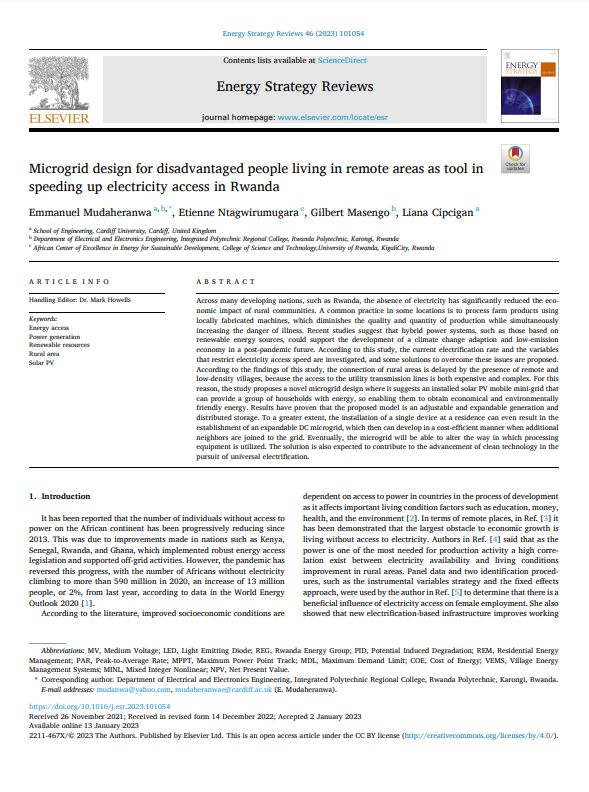Publication date: March 2023
Author: Elsevier
Description: Across many developing nations, such as Rwanda, the absence of electricity has significantly reduced the economic impact of rural communities. A common practice in some locations is to process farm products using locally fabricated machines, which diminishes the quality and quantity of production while simultaneously increasing the danger of illness. Recent studies suggest that hybrid power systems, such as those based on renewable energy sources, could support the development of a climate change adaption and low-emission economy in a post-pandemic future. According to this study, the current electrification rate and the variables that restrict electricity access speed are investigated, and some solutions to overcome these issues are proposed. According to the findings of this study, the connection of rural areas is delayed by the presence of remote and low-density villages, because the access to the utility transmission lines is both expensive and complex. For this reason, the study proposes a novel microgrid design where it suggests an installed solar PV mobile mini-grid that can provide a group of households with energy, so enabling them to obtain economical and environmentally friendly energy.






















